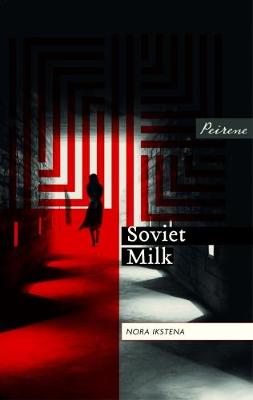Reviewed by Michael @ Knowledge Lost on
This is my first Latvian novel, and I will admit to having a very limited understanding of the Baltics. However I have read my fair share of Soviet literature so I was prepared. While this is a novel very focused on one individual, it does spend a lot of time exploring the mother/daughter relationship. This nameless woman has to struggle through so much, due to an unfortunate incident with a soldier in St. Petersburg. Reflective in tone, the novel is constantly searching for the answers. Switching between the bitter tone of the mother to a more curious tone with her daughter. It is a constant struggle between trying to hide the suffering from her daughter and her daughter trying to understand the depression of her mother.
Motherhood and milk are a constant theme throughout this novel. As a reader we are in this constant fragile state as we witness attempts of protection, anger, curiosity and sadness between the two women. This is a complex look into a mother/daughter relationship that says far more about Soviet and Latvian life that we might realise. Having conversations about this novel with Latvian blogger Agnese from Beyond the Epilogue, I know there is so much more to explore with Soviet Milk. I hope with many re-reads that I am able to start to understand more and more.
I believe this is autobiographical in many ways, giving us a little insight into Nora Ikstena’s own life. Margita Gailitis did a brilliant job translating this complex novel into English. I read this during a particularly stressful time at work and this lead me to struggle through this novel. I have a great appreciation for Soviet Milk but I review this knowing full well that I need to revisit this novel. I think it is worth checking out and I have continually been thinking about what Nora Ikstena was trying to do with Soviet Milk but I had to add a disclaimer as I struggled through the reading of this one. Not the book’s fault, just picked up at the wrong time.
This review originally appeared on my blog; http://www.knowledgelost.org/book-reviews/genre/literary-fiction/soviet-milk-by-nora-ikstena/
Reading updates
- Started reading
- 22 June, 2018: Finished reading
- 22 June, 2018: Reviewed
